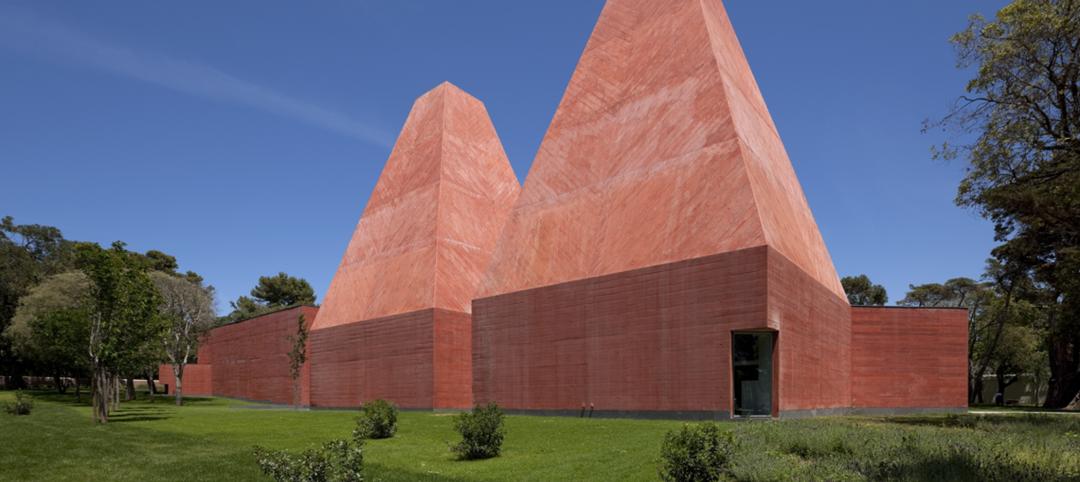The American Institute of Architects (AIA) Long Island Chapter presented its 2011 Archi Award Commendation for Health Care to John W. Baumgarten Architect, P.C., for its renovation of the Glengariff Healthcare Center’s Pratt Pavilion for Rehabilitation and Healing in Glen Cove, N.Y.
The AIA presented the Jericho-based Baumgarten firm with this award for the firm’s work at the one-time Gold Coast manse after a juried competition. The award was presented at the AIA chapter’s 47th Annual Awards Celebration on Oct. 19 at Oheka Castle, an event space in Huntington, N.Y.
The Baumgarten firm, a major player in the design of healthcare facilities throughout the tri-state area for many years, encountered a myriad of challenges in remodeling the mansion.
The original building, which dates to 1912 and sits on12 acres on the shore of the Long Island Sound, was converted to a skilled nursing facility in the 1970s. The property was sold to its current owner, Sanjay Ahuja, in 2008. The project started with the carefully engineered removal of a 2-foot thick brick-bearing wall in order to expand the building’s main lobby. The removal of this circa 1912 construction involved a logistically sophisticated sequence of bracing, shoring and underpinning, along with the threading in of new supporting steel to carry the floors above. The next phase of the project involved the conversion of an underutilized dining room into a physical therapy suite modeled after an upscale health club.
As a result of the renovation, the lobby became a significant focal point with its open and airy feeling inviting residents/patients and their families to a comfortable and warm area to socialize and congregate.
The two-story lobby features inlaid marble floors and wood-paneled wainscoting that pays homage to the building’s history. The existing grand lobby stair with its ornamental railings and ceilings were preserved, as was an original marble fireplace. Capturing abutting office suites and creating distinct seating areas defined by inlaid carpeting, further expanded the lobby footprint.
The AIA Archi Award jury praised the project for creating a “bright environment“ and for its “interesting use of furnishings.” BD+C
Related Stories
| Apr 5, 2011
Top 10 Buildings: Women in Architecture
Making selections of top buildings this week led to a surprising discovery about the representation of women in architecture, writes Tom Mallory, COO and co-founder, OpenBuildings.com. He discovered that finding female-created architecture, when excluding husband/wife teams, is extremely difficult and often the only work he came across was akin to interior design.
| Apr 5, 2011
What do Chengdu, Lagos, and Chicago have in common?
They’re all “world middleweight cities” that are likely to become regional megacities (10 million people) by 2025—along with Dongguan, Guangzhou, Hangzhou, Shenzhen, Tianjin, and Wuhan (China); Kinshasa (Democratic Republic of the Congo); Jakarta (Indonesia); Lahore (Pakistan); and Chennai (India), according to a new report from McKinsey Global Institute: “Urban World: Mapping the economic power of cities”.
| Mar 30, 2011
China's low-carbon future city
In 2005, the Chinese government announced its target to reduce energy consumption per GDP unit by 20% by the year 2010. After a multi-billion investment, that target has been reached. The Chinese Climate Protection Program’s goal to increase energy efficiency, develop renewable energies, and promote energy savings while reducing pollutant emissions and strengthening environmental protection is reflected in the “Future City” by SBA Design.
| Mar 30, 2011
Is the AEC industry at risk of losing its next generation leaders without better mentoring?
After two or three horrifying years for the AEC industry, we are finally seeing the makings of a turnaround. However, data developed by Kermit Baker as part of the AIA Work-on-the-Boards survey program indicates that between 17% and 22% of design firms are eliminating positions for interns and staff with less than six years of experience. This data suggests the industry is at risk of losing a large segment of its next generation of leaders if something isn't done to improve mentoring across the profession.
| Mar 29, 2011
City's design, transit system can ease gas costs
Some cities in the U.S. are better positioned to deal with rising gas prices than others because of their design and transit systems, according to CEOs for Cities, a Chicago-based nonprofit that works to build stronger cities. The key factor: whether residents have to drive everywhere, or have other options.
| Mar 29, 2011
Chicago’s Willis Tower to become a vertical solar farm
Chicago’s iconic Willis Tower (formerly the Sears Tower) is set to become a massive solar electric plant with the installation of a pilot solar electric glass project.
| Mar 29, 2011
Read up on Amazon.com's new green HQ
Phase IV of Amazon’s new headquarters in Seattle is nearly complete. The company has built 10 of the 11 buildings planned for its new campus in the South Lake Union neighborhood, and is on-track for a 2013 grand opening.
| Mar 29, 2011
Portuguese architect Eduardo Souto de Moura wins Pritzker Architecture Prize
Portugese architect Eduardo Souto de Moura, whose precisely-honed buildings reflect the influence of the late Chicago modernist Mies van der Rohe, is the 2011 winner of the Pritzker Architecture Prize, the field's highest honor.
| Mar 25, 2011
Qatar World Cup may feature carbon-fiber ‘clouds’
Engineers at Qatar University’s Department of Mechanical and Industrial Engineering are busy developing what they believe could act as artificial “clouds,” man-made saucer-type structures suspended over a given soccer stadium, working to shield tens of thousands of spectators from suffocating summer temperatures that regularly top 115 degrees Fahrenheit.












